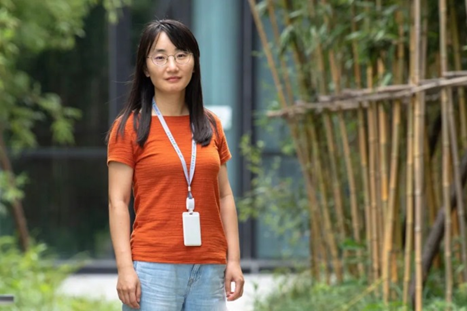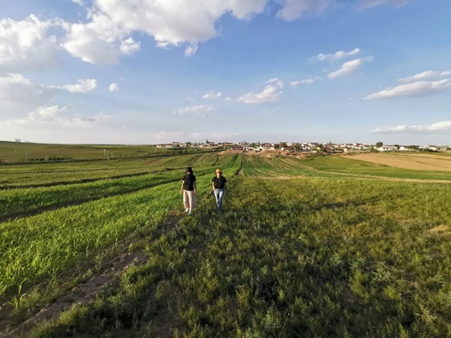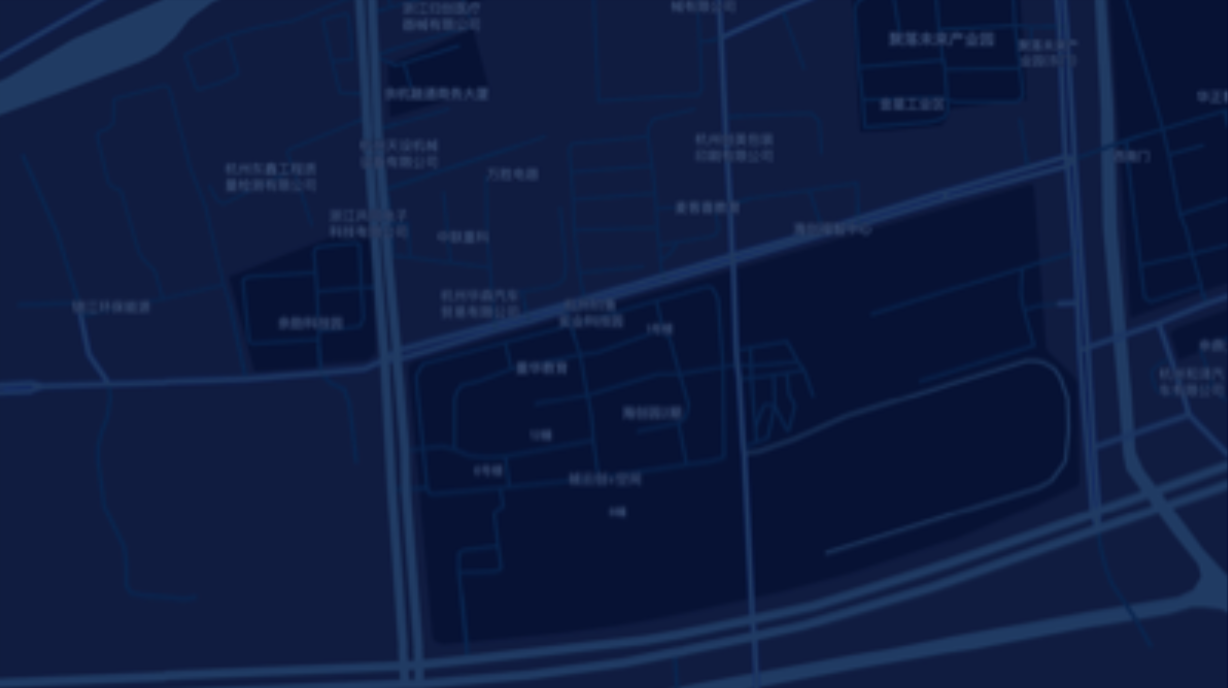

The college entrance exam may change many people's fate. It is also the case for MA Lingmei, research expert of ZJ Lab.
From a village primary school, to a key high school, the Tsinghua University, and then Virginia Tech, the trajectory of Lingmei's life is like that of a ripple that begins from a point and goes to the wider world.
However, MA Lingmei does not think she was a "straight-A" student. She says she did what she should and grasped the opportunities when they came to her.

01
From a village primary school to the Tsinghua University
Lingmei grew up in Yanchi County of Wuzhong City, about 140 km southeast of Yinchuan of Ningxia, a place of large pastures and a small population.
This vast land feeds Lingmei's family, and gave her a happy childhood as well. She loved to have fun in the fields, but her parents didn't approve. "They didn't want their daughter to have sunburn, and I could do little help. But I loved to go, weeding, harvesting, and having fun. I felt free and happy.”
Lingmei loves reading. Reading tells her different ways of life that she didn't know. A book from her head teacher in her middle school led her imagination to the world far away.“That book might not suit my age, and I hardly understood the story it tells. But I still remember the girl went to Peking University. Life in PKU took my heart.”
It was her head teacher that guided her and emancipated her desire for freedom and the wider world. “My head teacher lent us books, taught us calligraphy, and encouraged us to write something and contribute them. She told us to study hard and take a look at the wider world.”
Lingmei never forgets that her head teacher once arranged a composition titled "I really want to leave my home" or "I don't want to leave my home". “I chose 'I don't want to leave my home' because I have a happy family. Later I came to realize that I wanted to leave.”
"At that time, my knowledge about the world was, there were only three places in the world: Beijing which is far away, then Yinchuan, the capital city of Ningxia, and my hometown Yanchi. My parents asked me where I wanted to go when I grew up. My answer was always Beijing." Her curiosity about the wider world sprouted and grew into a desire.
In her high school of the class-exam-study stereotype, Lingmei pushed herself hard. She was one of the best students in her grade. "I never forced myself to compete with anyone else. I did what I should do. I competed with myself.”
After her college entrance exam, her teachers asked her to estimate her results.“Not too bad,”said she. The result was Lingmei got an offer from the Tsinghua University.

02 A new start
"The city's sky is not dark. It’s glowing."The newcomer was somehow not used to Beijing, where she saw streams of people that only existed in her imagination, but didn't find stars shining at night.
It was worse that she found she was living under stress on the Tsinghua campus. "I believed I was a smart girl before I came to the campus, while in Tsinghua, I found I was nobody,"said Lingmei, "Every time I came to a new school, I found I was far behind many of my schoolmates. It was just a small step from the village primary school to the middle school in the county, and I could catch up in the high school. While in college, I would have to take the largest stride.”
"Do not fail any exam!" Lingmei set her first target. There was no fixed timetable, nor fixed classroom or classmate. She had to choose her teachers and make her own timetable. It took Lingmei a year to adapt to the new environment. Like she did before, Lingmei caught up. Her "no fail" target was secured, and she won a postgraduate recommendation and the chance for a study visit to the Anna School of Advanced Studies in Pisa, Italy.
Different from Tsinghua, the Italian tutors seldom intervene in how their students study.
"My first project was building and testing a very complicated hybrid optical-electronics system. I had little knowledge about it, and I had to watch in the beginning." After spending time learning, Lingmei began her experiments independently. "When the second project came, my research director seldom engaged in the building and testing processes. Basically, I could do my job on my own.”
It was like swimming training. The quickest way to learn swimming is to throw yourself into the water. In Italy, where the research background was freer and experiment facilities better, Lingmei found the pleasure of research. She decided to go to her doctoral degree at Virginia Polytechnic Institute and State University.
She spent eight years in the USA. After her doctoral study, she stayed and worked in the USA, bringing her research from labs to application. One of her successful cases is the application of her distributed acoustic sensor to geological prospecting. She's learned from her American tutor the "application and demand first" principle, which steers her research career.
03 The new target
Lingmei joined ZJ Lab in the second half of 2020, where she works as a researcher expert in the Research Center for Optical Fiber Sensing, dedicated to the R&D of distributed acoustic sensing technology and devices.
"To make it simple, we use a long fiber as a sensor, and our device detects the sound waves that hit any part of the fiber. It's something like a device connected with a sensor array consisting of many microphones, and the device detects signals from different locations. This is distributed acoustic sensing," explains Lingmei.
This technology has a brilliant future in such fields as oil and gas prospecting and trail transport. In the first scenario, oil and gas locations are identified through crustal rock texture inversion, in which distributed acoustic sensing plays an important role.
"In the process of active prospecting, we send a sound source, and the sound waves reach different parts of rocks. Different rock textures reflect different feedback signals, and the sensor will capture them," explains Lingmei, "In the traditional approach, we need many acoustic sensors to precisely map the geological configuration. That means the device's size is large and cost is high, and the sensors' performance may not be balanced. While fiber can be very long and equal in width. Even a fiber cable is small in size. One fiber is equivalent to thousands or ten thousands of sensors.”














